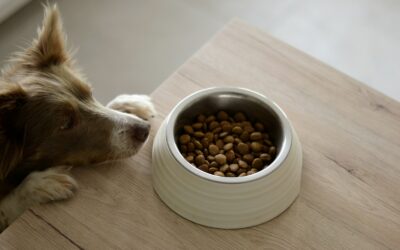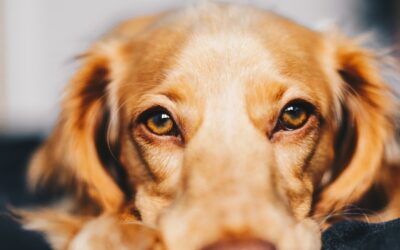Have you ever had to google ‘Why is my dog not eating his food but will eat treats?’
Dog owners are some of the most caring and attentive individuals, always keeping an eye on their canine companion’s well-being. But what happens when your furry friend refuses to eat his regular food but happily gobbles down treats? It’s a behavior that many pet parents have observed and one that can leave you feeling confused and worried. Is it just picky eating, or could it signal a deeper issue?
Why is My Dog Not Eating His Food but Will Eat Treats?
This article explores the reasons behind your dog’s refusal to eat regular food but still consuming treats and offers solutions to help your dog thrive. By the end, you’ll have a better understanding of your dog’s behavior and know when it might be time to seek veterinary advice.
Possible Reasons | Why is My Dog Not Eating His Food but Will Eat Treats?
1. Picky Eating Habits
Some dogs can be quite selective when it comes to their food, displaying a picky eating behavior that can be worrisome for pet owners when paired with a dog’s poor appetite. While this can be frustrating, it’s important to understand that picky eating in dogs is not uncommon and can stem from various factors. Here are some strategies to address picky eating habits in dogs:
- Experiment with Different Food Options: Try offering your dog a variety of dog food flavors and textures to find one that they prefer. Some dogs may have specific preferences, such as canned food over dry kibble or vice versa. By finding the right food that appeals to their taste, you can increase the chances of them enjoying their meals.
- Ensure a Consistent Feeding Schedule: Establishing a regular feeding routine can help create a sense of structure and predictability for your dog. Stick to consistent meal times and avoid leaving food out all day, which can lead to selective eating. By having designated meal times, your dog will learn to anticipate and appreciate their food.
- Avoid Feeding Table Scraps: While it might be tempting to offer your dog human food or table scraps when they refuse their regular food, it’s important to resist this temptation. Feeding table scraps can reinforce picky eating behavior and lead to nutritional imbalances. Stick to a balanced and nutritious dog food diet to ensure your dog receives all the essential nutrients they need.
- Consult with a Veterinarian: If your dog’s picky eating persists or is accompanied by other concerning symptoms, it’s advisable to consult with a veterinarian. They can evaluate your dog’s overall health and rule out any underlying medical conditions that may be affecting their appetite.
Remember, each dog is unique, and finding the right approach may require some patience and trial and error. By understanding the specific needs and preferences of your furry friend, you can encourage a healthy and enjoyable mealtime experience.
2. Changes in Diet or Food Preferences
Dogs may become bored of eating the same food every day. If you’ve been serving the same dry food or canned food for months, your dog’s decreased appetite may simply be due to monotony. Alternatively, switching to a new food could trigger a refusal if the flavor or texture isn’t to their liking.
Solution: Experiment with your dog’s diet. Consider trying a high-quality wet food or mixing wet and dry food together for variety. Make sure to transition gradually when introducing new food to avoid upsetting your dog’s digestive system.
3. Dental Problems or Pain in the Mouth
Pain in your dog’s mouth or dental issues can significantly impact a dog’s appetite and willingness to eat. Dental problems such as tooth decay, gum disease, or oral infections can cause discomfort and make chewing difficult. If your dog is exhibiting signs of avoiding their food or showing sensitivity around their mouth, it’s essential to consider dental issues as a potential cause.
Consulting with a veterinarian specialized in dental care can help identify and address any underlying oral health issues, ensuring your dog’s comfort and promoting a healthy appetite. Regular dental check-ups and proper dental hygiene, including toothbrushing and providing appropriate chew toys, are crucial in maintaining your dog’s oral health and overall well-being.
4. Underlying Health Problems
A poor appetite or a dog’s refusal to eat their regular food can signal an underlying health problem. Conditions like gastrointestinal disease, kidney diseases, liver cancer, or even airway and lung diseases can affect your dog’s appetite. Partial anorexia (when a dog won’t eat certain foods) is another indicator of potential health concerns.
Solution: Look for additional symptoms such as weight loss, vomiting, decreased energy, or changes in your dog’s eating habits over time. If you notice these signs, seek veterinary advice as soon as possible to rule out or address any health issues.
5. Digestive Issues or Food Allergies
Digestive disorders or food allergies can cause discomfort after eating, leading your dog to avoid certain foods. An upset stomach or sensitivity to specific ingredients could be the culprit behind your dog’s picky eating habits.
Solution: Work with your vet to identify any potential food allergies or intolerances. Switching to a hypoallergenic or sensitive stomach formula could help. Adding digestive enzymes to their food may also improve digestion and promote better appetite.
6. Impact of Stress or Environment
A change in your dog’s environment, such as moving to a new home, introducing other pets, or altering their routine, can result in stress or anxiety. Stress can make your dog refuse their regular food but still accept treats as comfort.
Solution: Ensure your dog’s environment is calm during meal times. Designate a quiet area for your dog to eat without disturbances. Sticking to a consistent feeding schedule can also help.
7. Age-Related Changes
As dogs age, they may encounter various age-related issues that can affect their appetite and eating habits. Just like humans, senior dogs may experience a decrease in their sense of taste and smell, leading to a decreased interest in food. Additionally, older dogs may have a slower metabolism, which can result in reduced food intake. It is important to monitor your senior dog’s weight and adjust their diet accordingly to ensure they maintain a healthy weight.
Providing them with high-quality, easily digestible food tailored to their specific needs can help address age-related challenges and keep them nourished. Regular veterinary check-ups are essential to catch any age-related health concerns early on and provide appropriate care for your aging companion.
How to Encourage Your Dog to Eat | Why is My Dog Not Eating His Food but Will Eat Treats?
If your dog won’t eat their regular food but will happily munch on all those treats, it’s time for some strategic action. Here’s how you can reset their eating habits and support a balanced diet:
Stick to Scheduled Feeding Times
Leave your dog’s food bowl out for 20–30 minutes during meal times. If your dog doesn’t eat, remove the bowl until the next feeding time. This approach trains your dog to associate meal times with food and eliminates the temptation of snacking on table scraps or treats.
Limit Treats
Reduce the number of treats you offer throughout the day to ensure your dog isn’t filling up on snacks. Treats should only make up 10% of your dog’s daily caloric intake to maintain a healthy, balanced diet.
Enhance Food’s Aroma
Warm your dog’s food slightly to enhance its aroma and make it more appetizing. Adding a small amount of chicken broth, plain cooked chicken, or even a spoonful of wet food can improve the flavor and encourage your dog to eat.
Invest in High-Quality Food
Choosing high-quality dog food with natural ingredients can make a noticeable difference. Many dogs thrive on food with minimal fillers and artificial flavors because it’s easier to digest and more flavorful.
Consult Your Vet
If your dog refuses to eat regular food for more than 48 hours despite your efforts, consult your veterinarian. Persistent food refusal could indicate serious health issues that need immediate attention.

When to Worry About Your Dog’s Eating Habits | Why is My Dog Not Eating His Food but Will Eat Treats?
While it’s normal for dogs to have occasional off-days, a prolonged decreased appetite or other symptoms like vomiting, diarrhea, or lethargy from normal dog food are causes for concern. Health issues such as liver diseases, inflammatory diseases, or blood diseases could be contributing factors that require medical intervention.
Reach out to your vet whenever your dog shows signs of a poor appetite or changes in eating habits. Timely veterinary advice can help address any underlying problems and get your pet back to enjoying their favorite dog food.
Bring your dog to Snouts and Stouts Dog Park and Bar to run out all their energy!

Helping Your Picky Pooch Thrive | Why is My Dog Not Eating His Food but Will Eat Treats?
So, why is my dog not eating his food but will eat treats?
It can be distressing to watch your dog refuse his food while still happily munching on treats. However, understanding the potential reasons behind this behavior—from food preferences and dental issues to underlying health problems—can help you take the right steps. By adjusting your dog’s diet, environment, or routine, you’ll encourage your furry friend to eat their food and maintain a healthy appetite.
Remember, your canine companion relies on you to make decisions that support their overall health. With a little patience and care, your dog will be back to enjoying their meals—and wagging their tail—with every bite.




